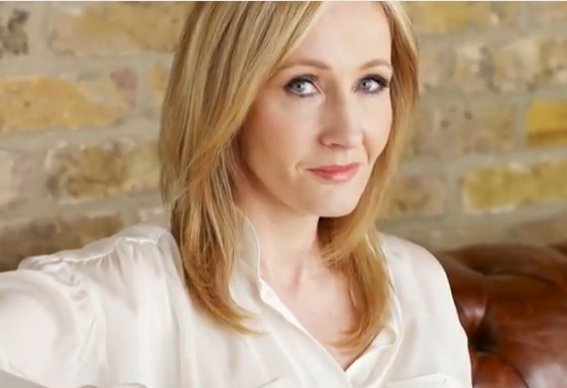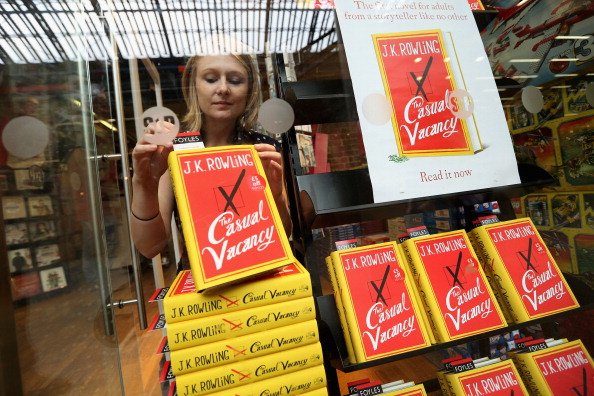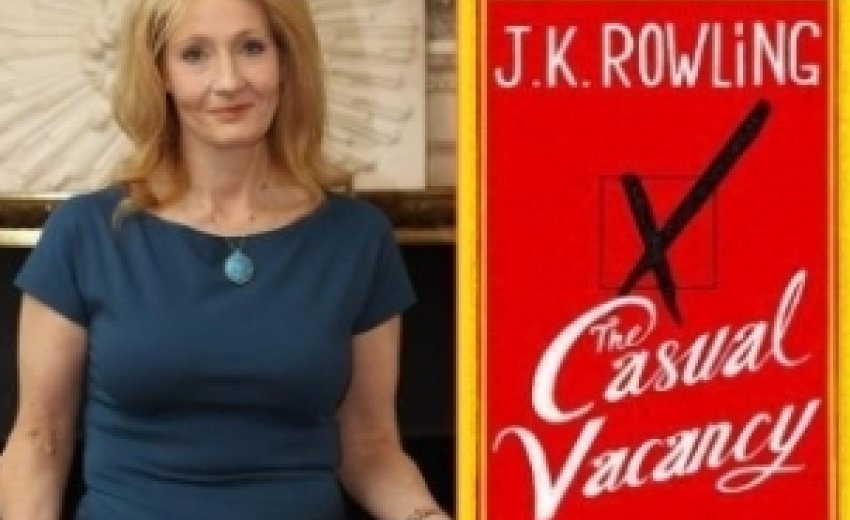"I did 'vast research' on Sikhism" - JK Rowling

Friday, Sep 28, 2012: Celebrated author JK Rowling, whose latest book has a Sikh family at the heart of a fictional village in south-west England called Pagford, says she did a "vast amount of research" on Sikhism – and it shows in the book titled The Casual Vacancy.
Answering questions from journalists and others at a book-reading event at the Southbank Centre here last night, Rowling, 47, said that when she was in her mid-twenties she knew a Sikh woman who sparked her interest in Sikhism.
It remained with her all along, so the only non-white family in the book "had to be Sikhs", she said.
Rowling said she was particularly struck by the egalitarian principles of the religion, and wove in a Sikh family as one of the central features of the book published by Little, Brown Book Group (RPT Little, Brown Book Group).
"I wanted the Sikh family at the heart of Pagford, and I wanted them to be second generation Britons. So they are insiders and outsiders simultaneously. In the book, it is Sikhism that provides religious morality, not the Church of England, which is represented by an empty church," Rowling said.
Early Indian-origin readers of the book released yesterday morning said they were impressed by the way the Sikh family and Sikhism had been treated in the book.
The book devotes considerable attention to Guru Nanak, Guru Granth Sahib, khalsa, and the "night-time prayer, Kirtan Sohila."

London-based media consultant Mimmy Jain, who grew up in Punjab, told PTI: "I was happily surprised to find that JK Rowling had done her research pretty well. There are no Hindu-Muslim or North-South name mismatches of the kind that make me shudder in the work of most Western authors who want to add a bit of curry to their books."
She added: "I liked her treatment of Sukhwinder, the only one in a high achieving family who is stuck because she is dyslexic. Of course, it's the parts about the kids -- all of them -- that really stand out in the book."
The book has received mixed early reviews, while the jury is out whether Rowling has succeeded in switching from the literary genre of children books to a novel explicitly marketed as one for adults.
She said she welcomed legitimate criticism, but it all "depends on who is writing the reviews."
The book contains several expletives that Rowling read out at the second reading at the packed Southbank event.
She described the book as a "tragic comedy".
---------------------------------
Related Article:
The Casual Vacancy Release Date and Reviews:
JK Rowling New Book Proves There is Life After Harry Potter
Rebecca Hanover
Source
 Stop sending that email, ordering that pair of Warby Parkers, or wrangling that hippogriff: J.K. Rowling’s The Casual Vacancy hits the shelves today—and your Kindle tomorrow—and at 512 pages, it should keep you busy for the next five days or so (three if you don’t shower). Rowling’s new novel for adults, her first published work since Harry Potter and the Deathly Hallows, has been highly anticipated by both die-hard Potter fans and critics alike.
Stop sending that email, ordering that pair of Warby Parkers, or wrangling that hippogriff: J.K. Rowling’s The Casual Vacancy hits the shelves today—and your Kindle tomorrow—and at 512 pages, it should keep you busy for the next five days or so (three if you don’t shower). Rowling’s new novel for adults, her first published work since Harry Potter and the Deathly Hallows, has been highly anticipated by both die-hard Potter fans and critics alike.
In this much-buzzed about profile in The New Yorker, the usually reticent Rowling is uncharacteristically forthcoming about everything from her difficult relationship with her father, to Harry’s mental health, to her vulnerability in publishing her first book not aimed at the under-13 set. A Potter addict myself, I hung on to every word—but if you’re strapped for time, here are five takeaways from the article that’ll get you reading-ready.
1. The Casual Vacancy is an ensemble piece: The book is about a local election in a made-up town called Pagford, and it centers on several families and their often-troubled teenage children. Not surprisingly, Rowling drew a detailed map of this fictional English town, in true Potter fashion (since she’s all detail-oriented like that).
2. It’s not your Hufflepuff’s novel: This book really, really isn’t for kids. It deals with everything from drug addiction to rape and includes lines like “that miraculously unguarded vagina.” Enough said.
3. It’s gritty, raw, and sugarcoats nothing: “I had a lot of real-world material in me, believe you me,” Rowling explained. The Potter series was straight-up fantasy; this book is (as Rowling herself categorizes it) a “comic tragedy.” Don’t expect apparating and owls, or you’ll be sorely disappointed.
4. Its “main character” is a grown-up Harry Potter: Councilman Barry Fairbrother dies early on in the book, but he’s still the “moral center” of the piece—just as Harry was the moral center of the Potter series. The book is about “mortality and morality, the two things I obsess about,” says Rowling.
5. It’s really f***ing brave: Okay, that one’s not in the article. And I should probably wait until I’ve actually read the book before going out on such a limb. But let’s face it—Rowling could have lived happily ever on a cloud of Butterbeer, but instead, she chose to put herself out there again, would-be critics be damned. Seems like something Dumbledore would have done.
Rebecca Hanover
Rebecca Hanover is a TV writer, novelist and Harry Potter connoisseur. She studied drama and creative writing at Stanford University before moving to NYC but now resides in the wilds of San Francisco. Check out more of Rebecca's writing on her blog, www.rebeccahanover.com.
 |
| Rowling says, “There is no part of me that feels that I represented myself as your children’s baby-sitter or their teacher.” |
Mugglemarch
J. K. Rowling writes a realist novel for adults.by Ian Parker
The conifer hedges in front of J. K. Rowling’s seventeenth-century house, in Edinburgh, are about twenty feet tall. They reach higher than the street lamps in front of them, and evoke the entrance to the spiteful maze in the film adaptation of “Harry Potter and the Goblet of Fire,” the fourth volume of her fantasy series. Rowling, who, at forty-seven, is about to publish her first novel for adults—it is set in a contemporary Britain familiar with Jay-Z and online pornography, but is shaded with memories of her own, quite cheerless upbringing—lives here with her second husband, Neil Murray, a doctor, and their children. She has a reputation for reserve: for being likable but shy and thin-skinned, and not at all comfortable with the personal impact of having created a modern myth, sold four hundred and fifty million books, and inspired more than six hundred thousand pieces of Harry Potter fan fiction, a total that increases by at least a thousand stories a week......more
